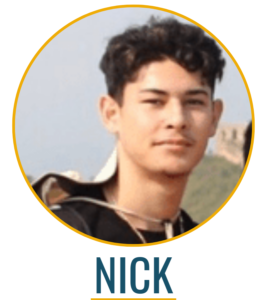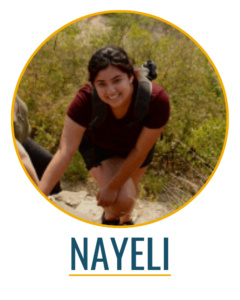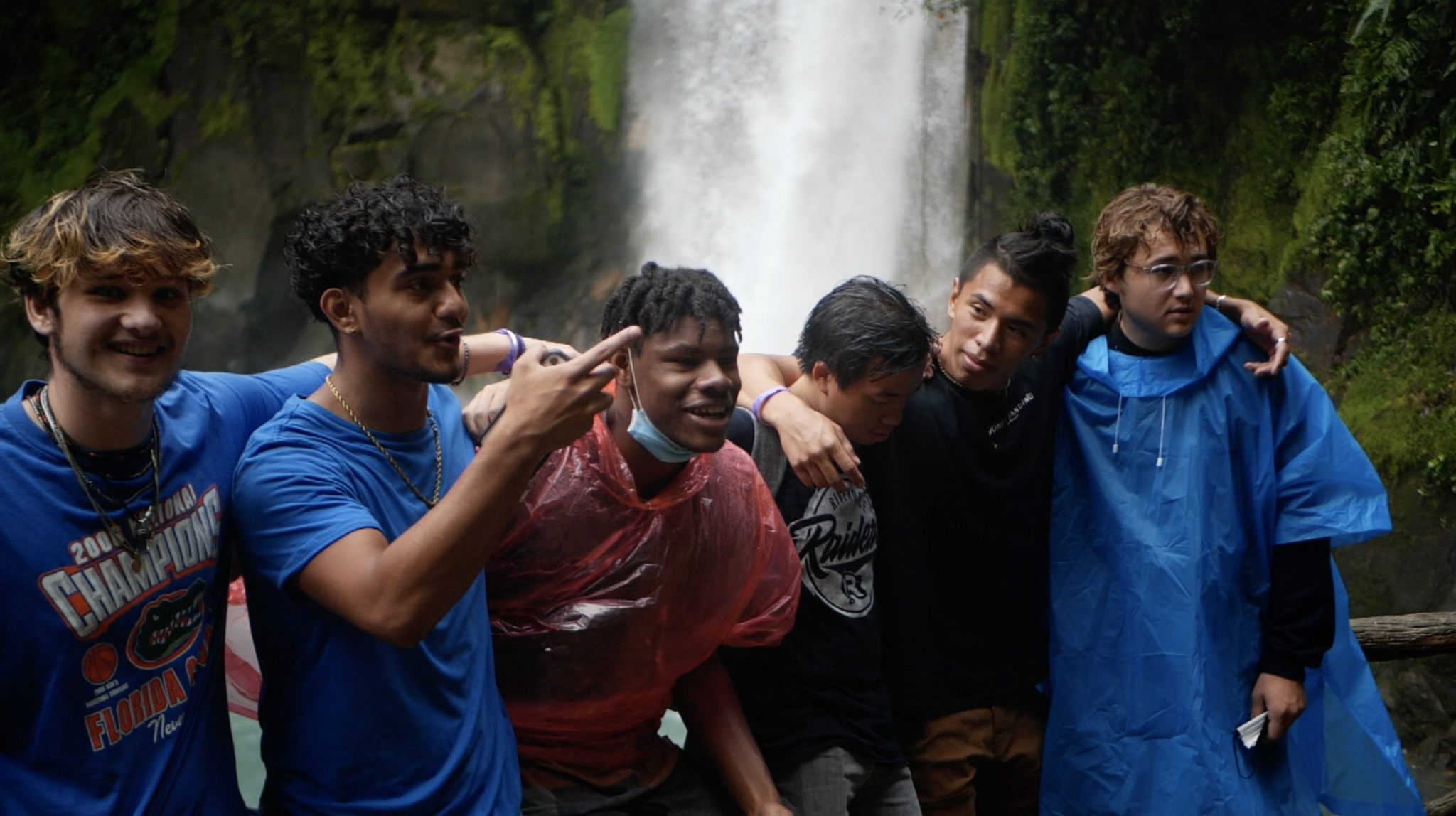
Pre-Departure Guide:
First-Generation Students
Whether you are a prospective participant, already enrolled, or a Verto alumni – we are thrilled to have you in the Verto Community! At Verto, we are committed to fostering community and embracing diversity in all of our locations – we value and welcome you for exactly the person that you are.
We acknowledge that aspects of all participants’ identities can bring challenges, questions, and opportunities both when entering a new community and especially while immersing in a new culture. Our Pre-Departure Guides are intended to be a resource for you as you embark on this journey.
Studying Abroad as a First-Generation College Student
First-Generation Students have previously participated and thrived in every location offered by Verto Education. This guide is intended to give you information, context, and perspective as you prepare for your experience with Verto.
It’s important to note that this guide does not mean to overgeneralize or oversimplify the complex experiences that participants can and will have. We acknowledge that all participants have intersectional identities – meaning, each community member has a unique experience based on the various social identities and personal histories they bring to the table – from race, ethnicity, gender, sexual orientation, citizenship status, class, ability, and more.

What to Know Before You Travel
Starting college, especially starting college abroad, can present a spectrum of experiences, opportunities, and unique challenges for First-Generation Students, who are students who will be the first in their family to graduate college.
First of all, congratulations! You should be proud of your path to a higher education degree. For many First-Generation College Students, a college degree can mean access to higher-paying or more fulfilling jobs, a wider network of peers, and new opportunities. Know that at Verto, we are proud of you – and we are proud to be a part of your path to a degree!
Much of the advice, expectations, and information about how to thrive in college (and during study abroad) is often passed down by word of mouth within families. This guide is an effort to help close the gap that many First-Generation College Students experience.
Below, we’ve summarized some potential challenges that former participants have shared, with a handful of tips and resources to help set you up for success.
The Challenge of the “Hidden Curriculum”
Adjusting to college-level academic rigor and the collegiate environment can be difficult for all students, and can be especially difficult for students who may not have received the “Hidden Curriculum” of insights or advice from their family members, mentors, or high schools.
When we refer to a “Hidden Curriculum” we’re referring to some of the “less obvious” knowledge about college that students can take for granted– for example, things like language choice and code switching, expectations from other students and faculty, norms and values like punctuality or hand-raising, and study skills including time-management, organization, or self-advocacy in the classroom.
The “Hidden Curriculum” is a type of “Cultural Capital,” which is the cultural knowledge we have (skills, norms, and behaviors) that alters our experiences and the opportunities available to us. This could include levels of education, style of speech, style of dress, amount of wealth, type of social network, and more. These differences may affect one’s access to upward mobility and/or the way they are perceived and treated in social or educational settings.
You may already be an expert on any or all of the above, or aspects of this new collegiate environment could be different than what you’re used to.
Tips to Thrive:
-
- Explore some self-reflection prompts. The following questions could help you think about what to anticipate and how you might want to react to various challenges:
- What is my identity and what are the parts that are the most important to me?
- How might this educational environment be different from the ones I was used to at home?
- How might I react if I find something to be offensive or frustrating? How do I want to react? How do I choose to react internally versus externally?
- How will I navigate a new culture and community while remaining true to my identity?
- What are some areas where I might want some more tools or support? How can I plan ahead to make sure I receive resources and guidance?
- Meet with your Academic Success Coordinator: At each Verto location, all participants will work with an Academic Success Coordinator who is there to help you get organized, prioritize your workload, develop study tools, and more. Be sure to schedule an appointment with them when you arrive on-site, and continue to advocate for yourself throughout your time abroad if you need or want more support.
- Find study-buddies. Studying with a friend or two is a great way to stay motivated and combine skills and knowledge.
- Get to know your faculty. You can start making connections now to help build your “social capital” and network. We encourage you to attend faculty office hours or schedule a one-on-one meeting. Don’t be afraid to strike up a conversation! Many faculty likely studied abroad themselves and can empathize with studying in another country & culture. Ask them about it! – Did you study abroad? If so, where? You never know– the convo could open up the door to a future internship or lead to a new educational opportunity!
- Get involved. Be sure to take advantage of extra & co-curricular opportunities. Your Verto experience abroad is a great way to pad up your resume with leadership and volunteer experiences! (But… don’t overdo it! Take it one activity at a time until you feel comfortable managing your workload and commitments).
- Build good habits now. The habits you create now on your Verto abroad experience will have a strong impact on the rest of your undergraduate experience and beyond.
- Have reasonable expectations for yourself. You may feel a lot of pressure to perform perfectly in your classes or be involved in every single opportunity. While you should strive to do your best, it’s okay if you make mistakes or feel overwhelmed. Cut yourself some slack. This is your first dip into college life and it is a learning experience!
- Feel proud of who you are. Regardless of your prior educational or travel experiences, you are worthy, you are awesome, and you deserve your seat at the table. You’ve worked incredibly hard to reach this point in your education– enjoy it!
- Explore some self-reflection prompts. The following questions could help you think about what to anticipate and how you might want to react to various challenges:
Financial, Academic, and Travel Planning
Some First-Generation College Students may not be familiar with the financial aid, academic planning, and college counseling resources available to them through Verto. Additionally, some First- Generation Students may not have had experience with preparing for international travel.
Tips to Thrive:
-
- Don’t hesitate to ask for help. Preparing for any type of travel can be daunting, especially if it’s your first time or travel is not something your family has a ton of experience with. This is where your assigned Student Onboarding Advisor (SOA) comes in. Your SOA is available for any questions you have regarding applying for a passport, purchasing flights, packing and more. In addition to your SOA, some resources include:
- Schedule a time with a Financial Services Counselor. Our team is here to support you and make sure you understand your grant and scholarships package, billing systems, and funding options. Email financialaid@vertoeducation.org to schedule an appointment.
- Meet with your College Counselor and think ahead about next steps. Your College Counselor is a great resource for discussing your college credits and mapping out your post-Verto plans, including college major exploration and career planning.
- Complete College Strong modules: As a Verto participant, you will have access to a series of online learning modules that you can complete on your own time or work with your Academic Success Coordinator to complete. We have many topics available for you to explore, including time management, goal-setting, how to study for a final exam, and more!
- Plan ahead for your budget. Like all participants, first-generation students can come from any type of economic background. For participants on a tighter budget, it may feel challenging to navigate expenses while abroad. Make sure you understand what is and is not included in your location cost and talk to your Student Onboarding Advisor in advance with any questions or concerns. Once you’re abroad, we also recommend scheduling a meeting with your Student Life Coordinator who can help with budgeting and money-saving skills like navigating public transportation, cooking for yourself, and finding low-cost activities.
- Plan how to access funds. All families will need to discuss how students will access money while abroad. Questions to explore: Will you have access to a credit or debit card? Will someone be depositing money into an account for withdrawals? Do you need to plan for wire transfers instead?
- You will discuss your options for money in your abroad location during Pre-Departure Orientation. Your SOA can answer any remaining questions you may have!
Various Levels of Privilege & Awareness in Your Cohort
No two Verto participants are going to be the same. Verto Education is a multicultural experience and you will interact with people who have different lived experiences and levels of privilege and exposure. This interaction is an expected and celebrated component of the Verto experience, and it may bring up times where someone’s perspective could feel frustrating or hurtful.
Tips to Thrive:
-
- Listen for intent. When you face potentially challenging questions or comments from your peers, we encourage you to listen for intent and consider that this may be the first time you or your peer have met someone with any given identity. This does NOT mean that intolerance is accepted; it does mean that we accept well-intentioned mistakes as part of the learning process.
- Feel free to say no. It is not your responsibility to educate others or speak on behalf of your identity group(s), unless you feel called to do so. If you don’t want to share about yourself or your perspective, you have every right to respectfully let others know that you’d prefer to change the subject.
- Use questions as a way to challenge beliefs or comments. For example, if someone says something that you find offensive or unthoughtful, you can try to reply by asking: “What do you mean by that?” or “Where did you get that idea from?”
- Remember that you belong. No matter what background you bring to the table, you are a seen and valued member of the Verto community.
Building Your Support Network
In a totally new environment, it can feel challenging to feel a sense of belonging at the start. Like all people, you probably want to feel seen and understood, and you may crave a group of friends that understand your background and lived experience.
Many First-Generation College Students feel a sense of “straddling two worlds.” As a First-Generation College Student, and particularly a student studying abroad, you might be having experiences that many family members and some friends may not be able to relate to or understand. There may be a feeling of tension regarding how to navigate these two worlds.
Tips to Thrive:
-
- Check-in with family and friends back home. You might want to consider setting up a regular time to check in with your support community back home every 1 or 2 weeks, especially at the beginning of the experience. It can be helpful to keep in touch with people from home who know you well.
- Get involved! Verto offers clubs such as Yoga or Art Club that provide all participants with fun activities and a sense of community. Don’t have a group yet for your favorite activity?! Start it!
- Invite others in. Want to link up with other First-Generation Students or start the conversation? Consider creating an affinity group for other First-Generation Students in your location, or starting a book club or conversation group to discuss relevant topics.
- Join Verto’s virtual affinity groups before departure to connect with participants of similar identities. You will have the opportunity to meet participants across all locations. (Find all event registration in your Student Portal).
- Get to know mentors, faculty, and staff on-site. They can be a great resource for advice, support, or just new perspectives! You never know who may have been a First-Gen Student or have other experiences in common with you too!
Advice From Alumni
Tons of First-Generation Students have participated, and thrived, on a Verto experience abroad. Here’s advice and words of encouragement from two alumni:
 “Being given the opportunity to be something bigger than is expected of you, proving others wrong, and showing that you can break those standards in order to succeed just like everyone else is what fuels first college generation students. Growing up I always noticed how my parents struggled to constantly work their 9-5 jobs just to barely get by, all the while sending money back to the Philippines to provide for the family. This has driven me to constantly step out of my comfort zone and take more risks in order to one day become successful enough to take care of my family and give back.
“Being given the opportunity to be something bigger than is expected of you, proving others wrong, and showing that you can break those standards in order to succeed just like everyone else is what fuels first college generation students. Growing up I always noticed how my parents struggled to constantly work their 9-5 jobs just to barely get by, all the while sending money back to the Philippines to provide for the family. This has driven me to constantly step out of my comfort zone and take more risks in order to one day become successful enough to take care of my family and give back.
[My advice?!] Embrace where you are from. Don’t be afraid to voice your opinion, and don’t act like someone you’re not. … Be yourself, be proud of where you are from, and make connections. Take full advantage of this experience you are given!”

“The weight on my shoulders and the pressure of being a role model for my siblings that came with being first-generation pushes me to do better and get back up [in hard times]. I am driven because I feel like I have to set a standard for my younger siblings and do more than what our parents did.
Everyone on my Verto experience has grown a lot from when we first met each other and I think that it’s such an amazing thing to witness. However, it is slightly different for me. I am the first to do both. Graduate high school and go to college AND get out of this small bubble back at home. Never in my life would I have thought I would be traveling this early in my life.
What you want to do deep down inside, where you can feel your heart explode, and when it excites you when you talk about it… do it. It’s not easy, I know. It requires a lot of internal strength and open mindedness. You will 100% be pushed out of your comfort zone. You will experience things you never thought you could and you will gain more than what you think.”
Want to hear more First-Generation Student perspectives? Check out the full blog post!
Verto Policies on Diversity, Equity, and Inclusion
Verto Education does not tolerate discrimination based on gender, sexuality, race, ethnicity, or ability. If you experience an incident of discrimination, harassment, bullying or assault, Verto encourages you to report it. You do not have to go through the experience alone and your voice and feelings matter. Assistance and resources are available, and you are not required to make a formal complaint or participate in an investigation to access them.
If at any point during the experience, you need to report any inappropriate activity, want to share something privately, or have a grievance, you may notify your Student Life Coordinator, Academic Success Coordinator, or email deanofstudents@vertoeducation.org.
Mental Health Resources at Verto
Mental Health support is available for participants via onsite and remote support services. Contact your Student Life Coordinator, Academic Success Coordinator, or email deanofstudents@vertoeducation.org to coordinate or if you need anything urgently.
External Articles & Resources
Definitions
The words people use to discuss power, privilege, identity, and oppression can often hold different meanings for different people. We believe it’s critical to have conversations from a place of shared understanding. The following definitions provide the framework from which we explore topics surrounding First-generation Student experiences in this guide.
Thanks to the Marquette University First Gen Guide for these definitions.
-
- Associates Degree: A degree granted after a two-year course of study, especially by a community or junior college.
- Bachelor’s Degree: An undergraduate academic degree awarded by colleges and universities upon completion of a course of study lasting three to six years.
- Cultural Capital: The cultural knowledge that serves as currency that helps us navigate culture and alters our experiences and the opportunities available to us.
- Hidden Curriculum: A set of unwritten and implied rules that dictate interactions among students, faculty, and staff. These can include social norms, customs and values.
- First-Generation College Student: A formal definition of a first-generation college student is a student whose parent(s) did not complete a four-year college or university degree.
- Financial Aid: Student financial aid is available to students attending a post-secondary educational institution. This funding is used to assist in covering the many costs incurred in the pursuit of post-secondary education.
- General Ed/General Education: General Education is the first part of a degree before you get into the Area of Study courses (the main classes that define your degree) or top off the degree with Free Electives. Basically, General Education (or Gen Ed for short) is a required curriculum that makes up the foundation of an undergraduate degree.
- Social Capital: The people you know or the connections you possess.
Common questions for students unsure if they identify as First-Generation Students:
-
- What if one of my parents graduated college but they were seldom or never a part of my childhood?
- What if my parents graduated from a college outside of the United States but their degree does not transfer to the position of expertise in the U.S.?
- What if one of my parents completed college right before I started or as I am completing my degree?
- What if one of my grandparents graduated from college but not anyone else in my family?
Regardless of how you would answer any of these questions, the way you choose to self-identify or categorize your lived experience is always completely valid. Identifying as a First-Generation Student is your personal choice.

No matter how well prepared you are, this experience is bound to bring up new questions and unfamiliar situations. We want you to know that the Verto team is here for you throughout this journey.
Enrolled Verto Participants: If you have any questions or concerns at all, don’t hesitate to reach out to your Student Onboarding Advisor.
Prospective Verto Participants: Does it sound like a Verto experience abroad could be a good fit? We invite you to apply today so that you can start a conversation with your personal Admissions Counselor!
We are so excited for all the learning, growth, and adventures in store for you!
Enjoyed this article? Explore the rest of our Pre-Departure Guide series: check out the Race & Ethnicity and LGBTQ+ Students guide as well.


